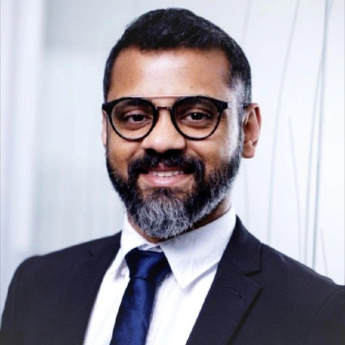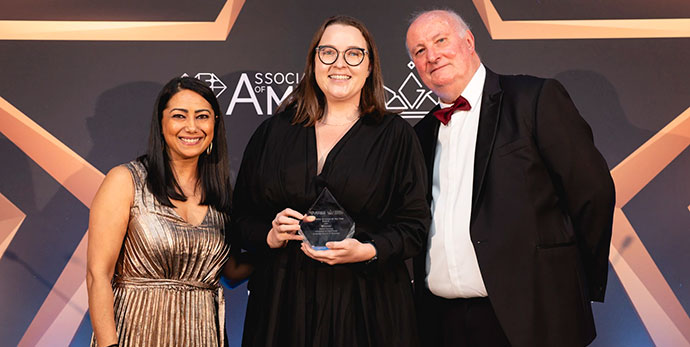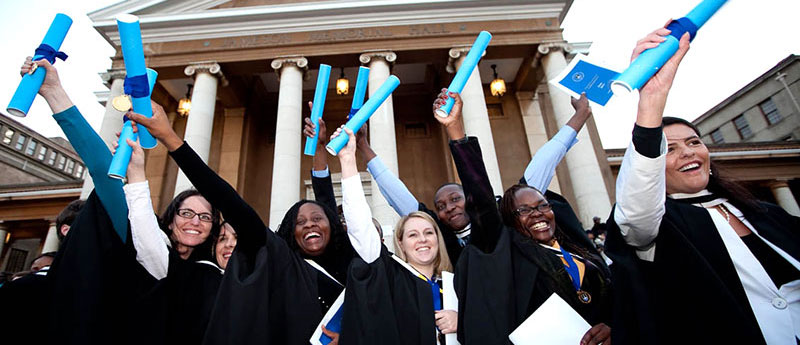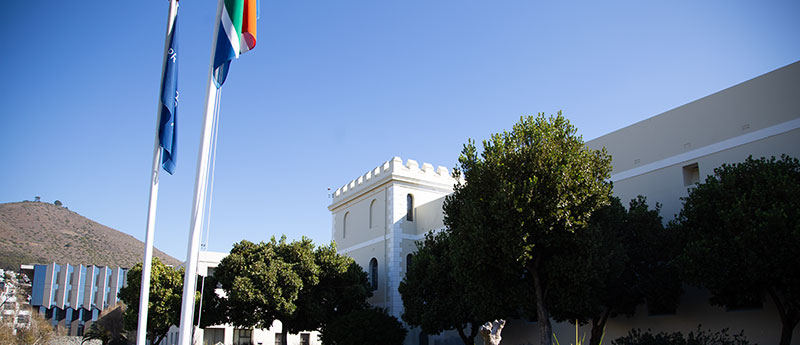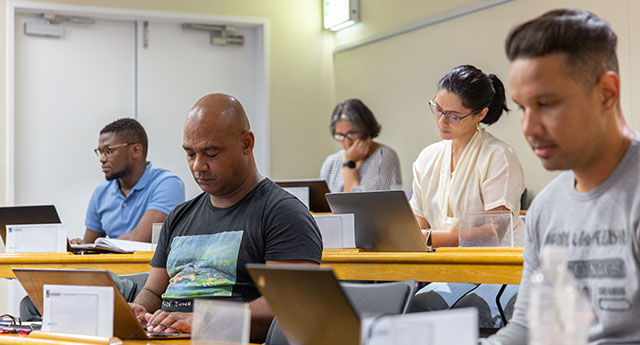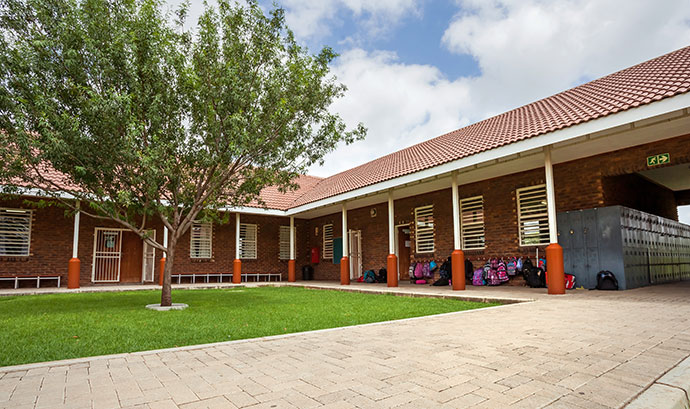Tell us a little bit more about yourself and your career path leading up to the EMBA.
I’m a qualified actuary, and started off in healthcare at Old Mutual, providing actuarial consulting services to medical aid schemes in South Africa. I was in the healthcare industry for two or three years, travelling between Cape Town and Johannesburg. Then I became interested in short term insurance and joined Santam in 2009.
In that time, Santam bought into a short-term insurer in India. So in 2011, I was seconded to Jaipur in Rajasthan, to start up a department at Shriram Insurance. I was there for two and-a-half years, and that was an amazing experience.
Look. I'm Indian, so I expected it to be a soft landing. My family still has very close connections with family in South India and we’d go there every two or three years to visit family. So culturally, I thought it should be quite easy. Within two weeks I realised: no, not at all – I’m South African through and through, culturally. So there was quite a disconnect there. But I grew to appreciate the differences in our cultures, and also what we have in South Africa and how blessed we really are here.
So I came back in 2013. And, you know, we complain a lot about what's in South Africa, but it's only when you leave that you realise what we actually have. Every country has its struggles, there's no utopia. We have our own but the South African spirit is never-say-die.
At Sanlam, I was in the emerging markets space, so I provided actuarial services to quite a variety of countries across the continent. We were present in 33 countries, so I've travelled quite a lot. And it was during that time that I began to feel boxed-in or typecast as an actuary. I wanted to broaden my horizons, but whatever role I applied for, they always saw me as strictly just an actuary. And that was what I'd hoped that – at least from a CV perspective – an EMBA would change.
In what ways has the EMBA changed your personal and professional outlook?
Actuaries are seen as black boxes. Never questioned in terms of the numbers. And over the years, that almost became a part of my psyche, if I can call it that. It became directly tied to how I see myself, my self-worth, my social status. So if ever I was questioned on anything, I lacked that awareness to separate it from a personal question, to not take it personally. And then also I got married. (laughs)
Other than the workload, did the EMBA affect your personal relationships at all?
My wife, Sharon, would engage me on this [tendency to take things personally] and say: let me just try to understand it better. I sometimes would humour her – or put up a wall. But during the EMBA I started seeing an executive coach, and that really helped to bring down that wall. I realized that it was okay to be wrong, to rely on others for direction. That doesn’t make you any less of a person. If anything it lifts you up because you have so much more of a support structure. I know that this type of coaching has a corporate focus, but a lot of that filters into your personal life as well.
So while the career growth has been amazing, it has done wonders for me in my relationships, not just with my wife, but also with my friends. Being aware of the insecurities that I've got, and knowing that it's okay to have those insecurities. How do I show up if one of those insecurities comes to the fore? I’ve realized that if I'm challenged on something, I’m now able to take a step back.
The trick is to know how to think about thinking, to take a bird's eye view, and understand: this is how I'm reacting to that situation. And because I've got that awareness, I can choose to react. Or not react, exactly, but respond. Take the emotion out of it. And I guess, be more positive in that situation. That has been quite an eye- and mind-opening experience.
Tell us a bit more about the course itself. Were you challenged or surprised in any way by the curriculum?
I didn't expect the extent of leadership growth focus that there was. I just expected it to be the standard, by-the-books, economics, design-thinking topics that you could get with, say, an online course. But there was a lot of emphasis on philosophy, on the growth that needs to happen for you to be a leader rather than a manager. I only got a proper appreciation of it maybe by the end of the first year. But if I look back on it now, I can clearly see that golden thread coming through.
Of course at the start there was the accounting, the economics, but gradually there was more requests to reflect on how we react and how we want to respond. And then by the start of the second year it really started coming together. And that is very much by design. So I really think that it was an amazing experience. And anyone who has ambitions of growth, of going up the corporate ladder… I think that self-awareness is a fundamental ingredient that's needed. Because as leaders, we need to have a greater awareness of our behaviours, our worldviews, and our values.
How has it affected your career?
It has opened a lot of a lot of doors. When I came into the programme, in 2020, I was a senior manager. I'm now on a group executive team. Last year Sanlam bought a 6% stake in a company called AfroCentric, and they asked me to move across to take care of actuarial data and strategy. So it's had a massive impact.
How much of it can be attributed to the EMBA programme? I think that a significant portion can be. But not just the fact that it looks good on my CV; it’s how I show up in situations and help people. And the confidence I've received from this programme is essentially the confidence I've created for myself to let go of a lot of the negative aspects of my personality and how I show up. That's been quite a metamorphosis.
You show up as a more positive person in a lot of situations rather than being insecure and focusing on self-preservation. You learn to take care of the collective, if I could call it that. And that then positions you as someone for the future, someone who can help [your organisation] in a difficult situation, who's not looking out just for his own self interest, but for the greater good.
What would you say to anyone who is considering an EMBA at the UCT GSB?
It’s not only CEOs and group executives that should be part of it. Anyone who wants to have a mirror held up to them to say: these are your worldviews, this is why you behave the way you do in certain situations. Now that the mirror has been held up and you have that awareness, you are now empowered to behave differently. And I think that's very powerful.

